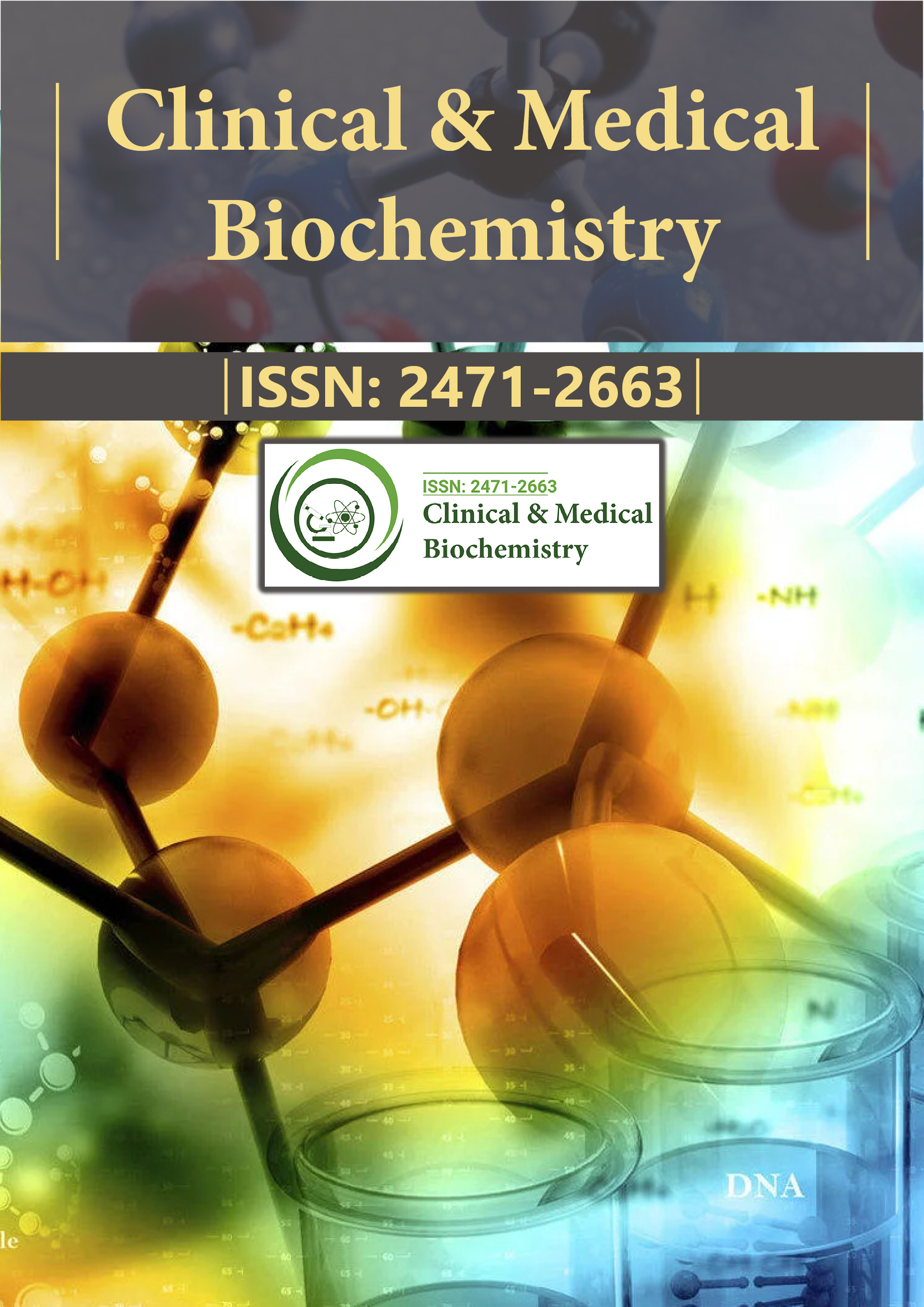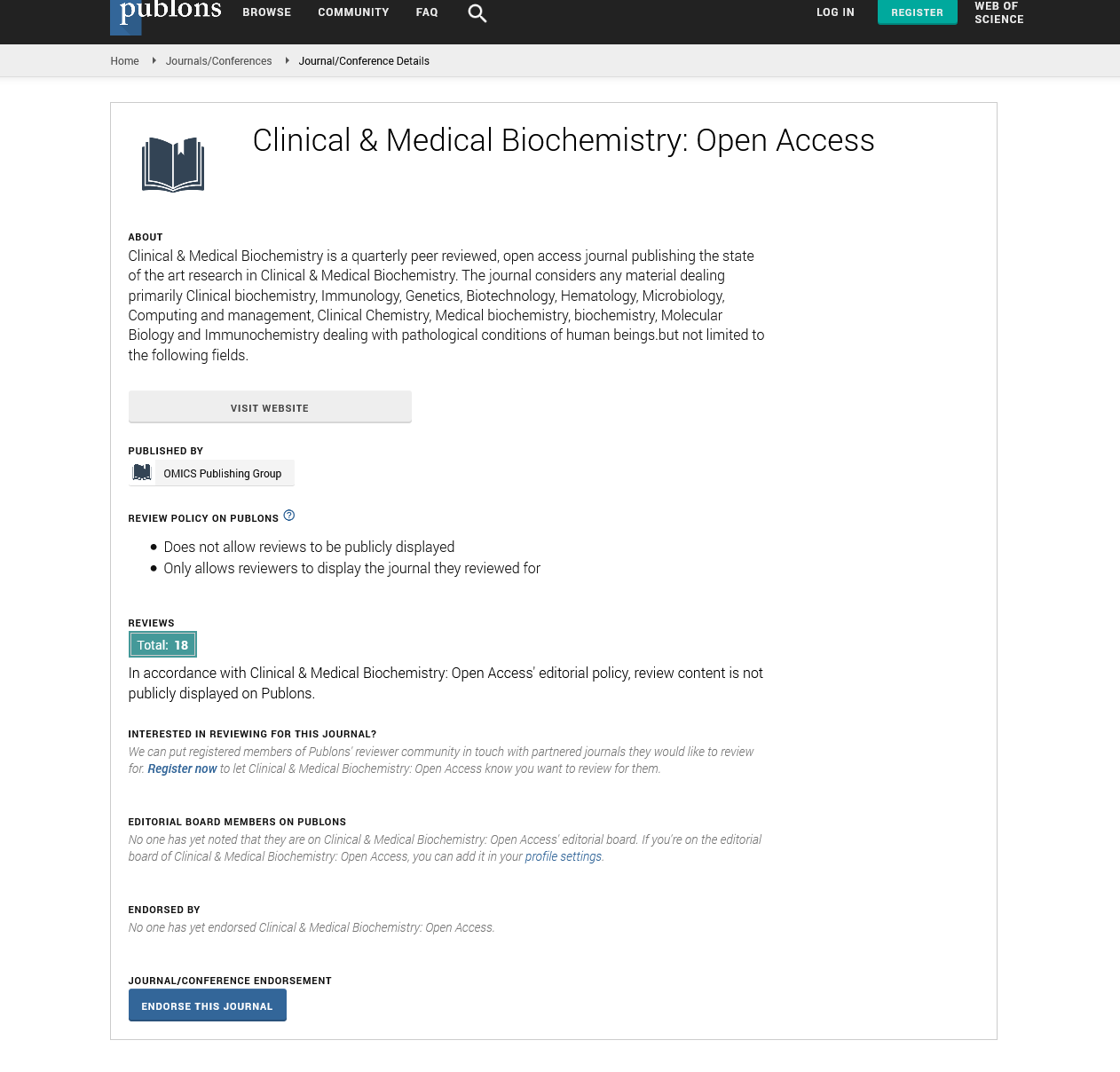Indexed In
- RefSeek
- Directory of Research Journal Indexing (DRJI)
- Hamdard University
- EBSCO A-Z
- OCLC- WorldCat
- Scholarsteer
- Publons
- Euro Pub
- Google Scholar
Useful Links
Share This Page
Journal Flyer

Open Access Journals
- Agri and Aquaculture
- Biochemistry
- Bioinformatics & Systems Biology
- Business & Management
- Chemistry
- Clinical Sciences
- Engineering
- Food & Nutrition
- General Science
- Genetics & Molecular Biology
- Immunology & Microbiology
- Medical Sciences
- Neuroscience & Psychology
- Nursing & Health Care
- Pharmaceutical Sciences
Controlling cancer through dual acting apoptotic enhancers and autophagy inhibitors: Design, synthesis and discovery of new heteroaryl lead compounds
22nd International Conference on Medicinal Chemistry and Drug Design
November 09, 2022 | Webinar
Reem K Arafa
Zewail City of Science and Technology, Egypt
Scientific Tracks Abstracts: Clin Med Bio Chem
Abstract:
Targeted cancer therapy that block the growth and spread of cancer by interfering with specific molecular targets have earned a prime standing compared to traditional chemotherapy by virtue of their advantageous target selectivity and comparatively less side effects. Quinazoline derivatives have been introduced as an important structural scaffold for this type anticancer agents. This work presents the synthesis of a series of novel quinazolines derivatives, and their antiproliferative activities against two human cancer cell lines (MCF-7 and A-549). Synthesized compounds were more potent against MCF-7 than A-549 eliciting IC50s values in the low micromolar and submicromolar range. Compound 17 exhibited the best IC50 being equipotent with the positive control doxorubicin (IC50 = 0.06 μM) and better than 5-Fluorouracil (IC50 = 2.13 μM). Compound 17 was further tested for its apoptotic activity where it significantly increased apoptotic cell death through induction of pre-G1 and G1- phase cell cycle. Its effect has been explained by an observed increase in the expression of proapoptotic genes as P53, PUMA, Bax, caspases 3, 8 and 9 and a decrease of the antiapoptotic gene Bcl2. Also, 17 was able to reduce autophagy giving way for apoptosis to induce cancer cells death. This latter observation was associated with a downregulation EGFR. Finally, in vivo results have affirmed the anti-tumor effect of 17 in a mouse model of breast cancer.
Biography :
Reem Arafa is a Professor of Biomedical Sciences and the Director of the Drug Design and Discovery Lab at University of Science and Technology, Zewail City since joining the City in September 2014. Arafa is also the coordinator of the Drug Design and Development concentration at the Biomedical Sciences Undergraduate Program. Arafa has 4 US patents and over 70 publications in the field of discovery of bioactive small molecules. Arafa’s current research interest is directed towards employing molecular modeling and medicinal chemistry tools and techniques for the design, discovery and optimization of new anticancer and anti-Alzheimer’s lead compounds.

